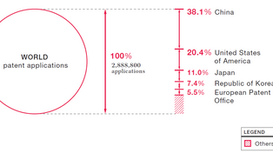What rights does copyright comprise?
- Admin

- May 10, 2023
- 1 min read

The definition of copyright and the rights it encompasses are critical aspects of copyright laws around the world. However, the specifics of copyright provisions can vary based on a country's cultural traditions, economic conditions, and values. Generally, copyright laws differentiate between moral rights, which protect personal rights, and economic rights, which safeguard property rights. Moral rights usually include the right to be identified as the author or creator of a work (often referred to as "attribution" or "paternity"), the right to maintain the integrity of a work, and the right to publish or modify a work. Economic rights may include the right to reproduce a work, rent it out for temporary use, communicate it to the public through performances, broadcasting, or online dissemination, and control the creation of derivative works, such as translations and adaptations. The right of reproduction, which involves creating finished works in the same form, is the core right in property rights.






































Comments